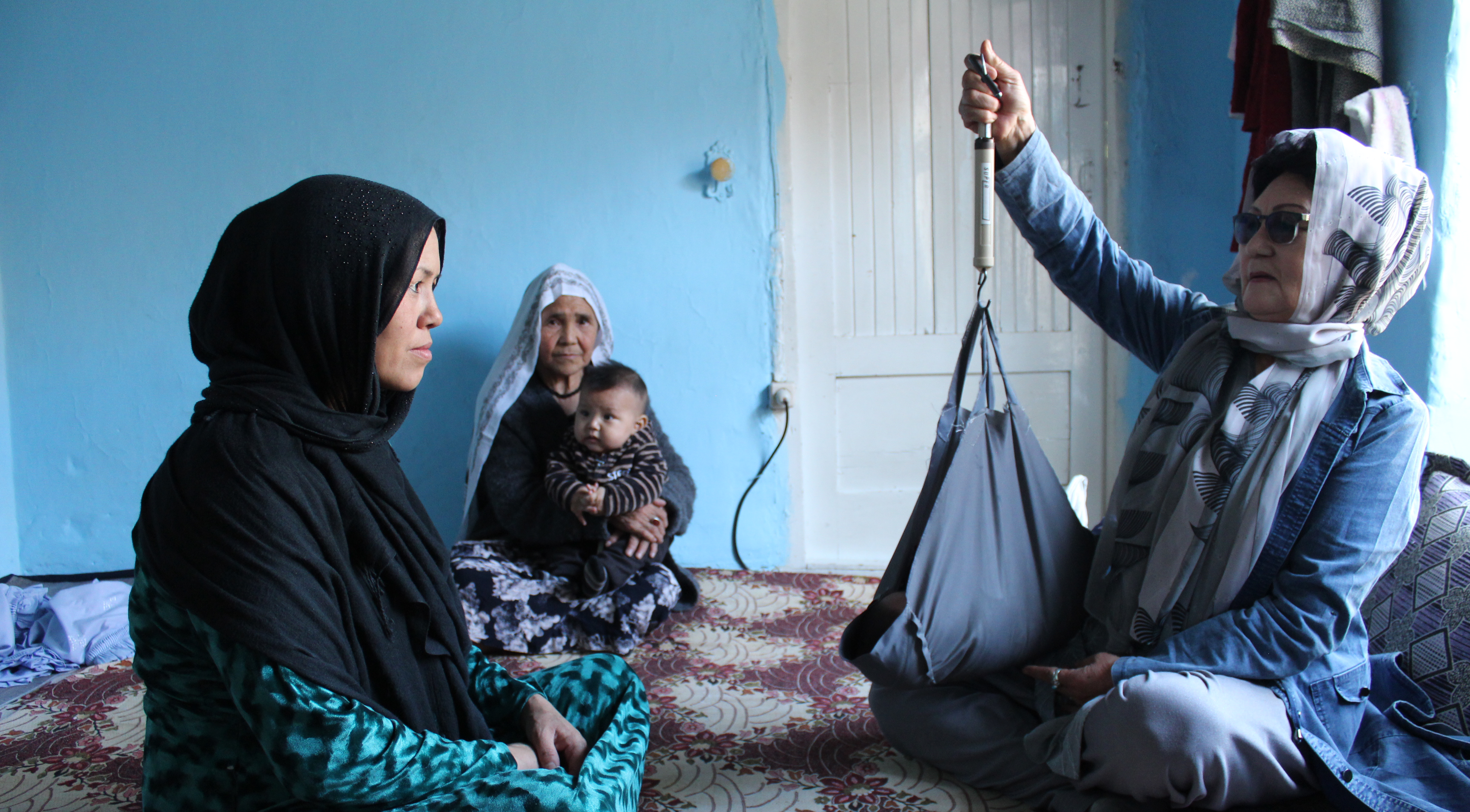An interview with Erhard Bauer, Head of the Terre des hommes (Tdh) delegation in Afghanistan, Pakistan, and Tajikistan.
What is your scope of action in Afghanistan?
Terre des hommes (Tdh) has been providing mother and child healthcare in Afghanistan since 1995. Our work addresses the lack of access to healthcare, partly due to certain Afghan traditions limiting women’s mobility. We employ mobile teams of midwives and social workers who visit families and provide them with health care and social support services (e.g., examinations, advice on preparing for childbirth and newborn care, hygiene instructions, and guidance on family planning). With this approach, Tdh has significantly contributed to reducing maternal and child mortality.
Another essential part of our work in Afghanistan is child protection. We support children and their families on the move within Afghanistan and returnees from Pakistan and Iran. The armed conflicts in Afghanistan have caused enormous population movements over the past 21 years. To this day, land and property occupation and droughts affecting livelihoods have prevented many internally displaced people (IDPs) and refugees from returning home. Thus, they stay in areas offering better living conditions (mainly in the big cities or in the eastern part of Afghanistan). Children displaced from their initial environment live in precarious conditions (without adequate shelter) and are often not welcome in their new environment. In these new areas, either the necessary services (health care or school) are non-existent, or the local resources are so limited that they cannot meet these children’s needs. As coping mechanisms, some families resort to child labor or early marriage. Tdh’s role is to help prevent such a situation by raising awareness of families and host communities concerning the hosting conditions, providing livelihood support, and increasing access to new income-generating opportunities. In this way, Tdh has helped many children return to school.
Has the Taliban takeover of the Afghan regime had an impact on your work?
The Taliban takeover of the regime, which occurred last year (in August 2021), was a game changer for us but, at the same time, not entirely new. Since some of our colleagues had previously worked in Taliban-ruled areas, we – as an international organization – had already gathered experience in working in a Taliban-ruled environment and coordinating with Taliban officials.
What has been your main concern after this change and how are you dealing with it?
We employ 280 Afghan workers, including three expatriates. Our work is mainly carried out by Afghan female staff. Our mother and child health program is almost exclusively carried out by female midwives, doctors, and social workers with only a few male colleagues. After the Taliban took power, our main concern was to find out their official position on women’s employment. We were not sure whether our female colleagues would still be allowed to work. It took several weeks, if not months, before the Taliban’s rule was really established, and we could figure out which counterparts to approach in the new administration. At first, this climate of uncertainty led us to stop our activities. Once we identified the right and available counterparts at the national and provincial level, we got the necessary permits fairly quickly (within 3 weeks), allowing our female colleagues to go out and carry on with their work.
How was your (work) environment like during the regime change?
The takeover was mostly peaceful in the big cities, but it brought about numerous changes in the administration. The population was unprepared and shocked, especially by the speed of the changes. Those in charge of the security sector (police, army) disappeared, and unofficial actors initially provided security services. Then, the Taliban gradually took over some of the duties. Ensuring the safety of our staff was our priority. After that, we took the time to discuss internally our next steps, where we would position ourselves under these circumstances, what would still be possible, and what would not. Ultimately, our mother and child healthcare activities were not very affected as we benefitted from community support, and some of the Taliban acknowledge the added value of our presence. Furthermore, our principles of impartiality and neutrality may have been a door opener.
What opportunities and challenges do you see for the future of your work in Afghanistan?
Over the past few decades and before the Taliban took over Kabul, we had witnessed improvements in school and higher education attendance rates, including in girls’ enrolment rates. Since March 2022, the Taliban have prevented girls from attending school after grade 6. For now, we are still able to find qualified female staff. Still, if this situation continues the way it currently is, there will soon be a lack of trained staff in the health sector and other sectors contributing to society’s peace and development. If the Afghan education system interrupts the education of female midwives and doctors, we will certainly not be able to pursue our activities, as the recruitment of women for reproductive health is imperative in this country.


